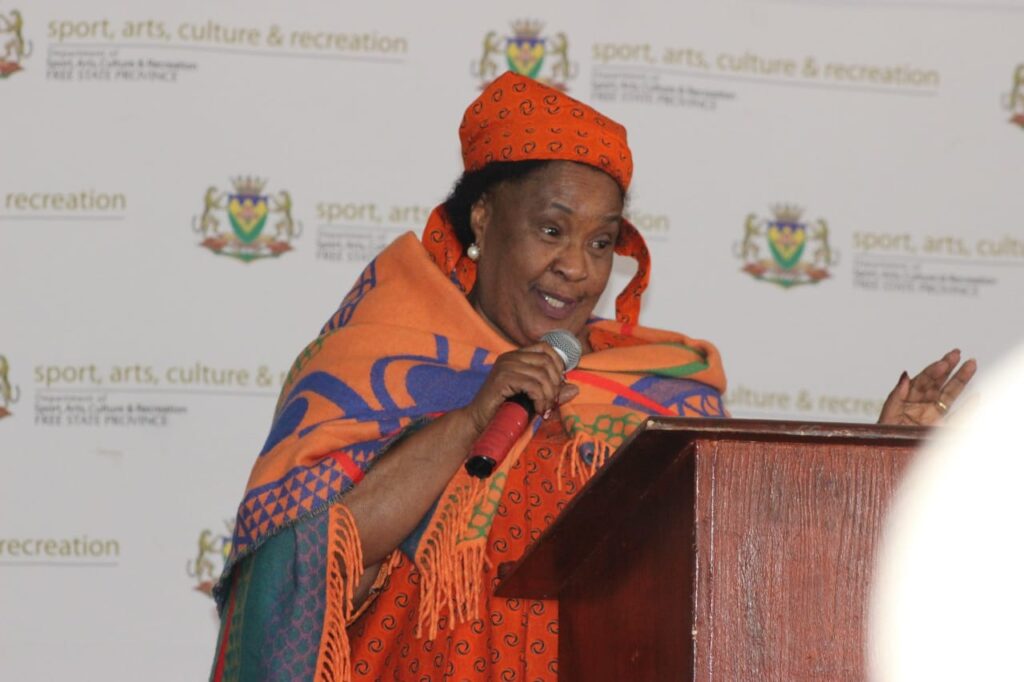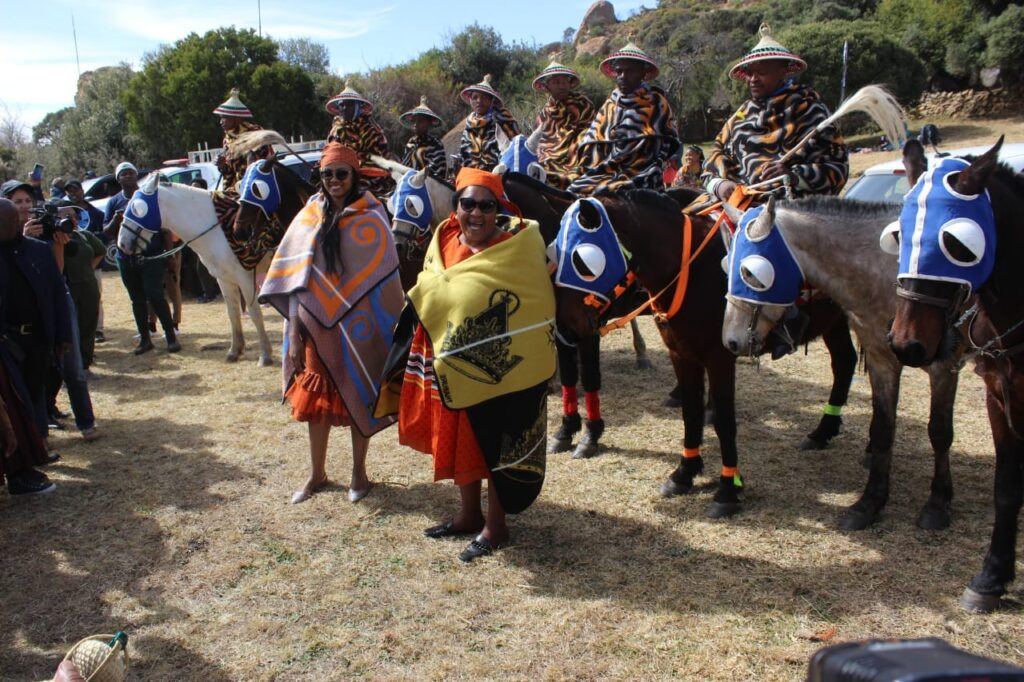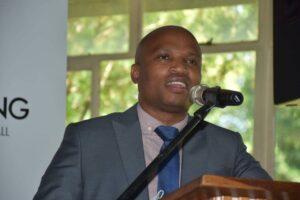By Emily Setona
QWAQWA – The Premier of the Free State Sefora Ntombela has urged residents of Free State to preserve Sesotho – the most widely spoken language in the province.
Ntombela who was in the company of MEC for Sports, Arts, Culture and Recreation (DSACR) and the House of traditional leaders, said this during celebrations to mark the beginning of Basotho year.
Ntombela and MEC Limakatso Mahasa spent the 6th of August at the Basotho Cultural Village enjoying a host of cultural activities that boasted a vibrant Basotho culture that prides itself with a deep respect for its traditional leaders and the Sesotho language.
Ntombela’s call is in line with late President Nelson Mandela’s quote on language: ‘If you speak to a man in a language he understands, that goes to his head. If you talk to him in his own language that goes to his heart.’
Ntombela said statistcally, Sesotho is the most common language spoken in Free State by 64 percent of the Free State population, therefore its preservation and promotion is very critical in the pursuit of national building and social cohesion.
“As we gather here celebrating the Basotho New Year, it is very important for us to embrace our languages and teach our children our culture, because a nation that does not embrace its culture and language is a nation that destroys itself,” Ntombela said.

Echoing these sentiments, MEC Mahasa said: “As a department we have made a commitment to make sure that the Basotho New Year is not celebrated on this day only, but that the Basotho Cultural Village remains open and welcomes school children to teach them about our culture and heritage because as a people we have lost the true essence of our identity and it is very important for us to reignite the spirit of who we truly are,” Mahasa said.
During this celebration, King Paulos Moloi of the Makholokoe clan stated that one of the responsibilities of the House of Traditional Leaders is to make sure that the Basotho New Year is celebrated in the same way that their forefathers did many years ago.
“As member of the House of Traditional Leaders I would like to emphasize the fact that it is our responsibility and duty to protect and preserve our culture and heritage,” Moloi said.
August 1 marks the Basotho New Year. Historically, Basotho did not follow the calendar, but rather relied on the position of the moon, a natural indicator of the season.

The Basotho New Year is celebrated annually after the last days of winter to give way to new life after the dry season. The celebration starts in August, which is known for blowing winds, clearing the mother earth and refreshing the ground with showers of spring.






More Stories
FS ANC slams Youth League
Free Stater gets high position in DA
City manager in appointment controversy